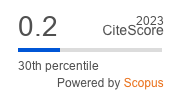L’imperativo dell’eterno come morale meta-nichilistica: note per una discussione su Alberto Caracciolo
Parole chiave:
Alberto Caracciolo, Nihilism, Philosophy of religion, Continental philosophy, Italian philosophy, History of scienceAbstract
Alberto Caracciolo (1918-1990) was among the most important Italian philosophers of the Twentieth century. He devoted his reflection mainly to the philosophy of religion. He investigated both its historical and theoretical dimension, looking at the complex interplay between the religious attitude and the problem of Nihilism. This paper aims to show the reason why Caracciolo’s philosophy can be seen as a successful way to go beyond the age of Nihilism. To do so, I firstly present how Caracciolo conceived of Nihilism. Secondly, I show in what sense Caracciolo’s reflection results in an ethical proposal focused on the concept of freedom. I also argue that this freedom is considered by Caracciolo in its peculiar religious meaning. Thirdly, I suggest that Caracciolo’s way to present these issues has something interesting to say also in other fields, such as the history of early modern science.



